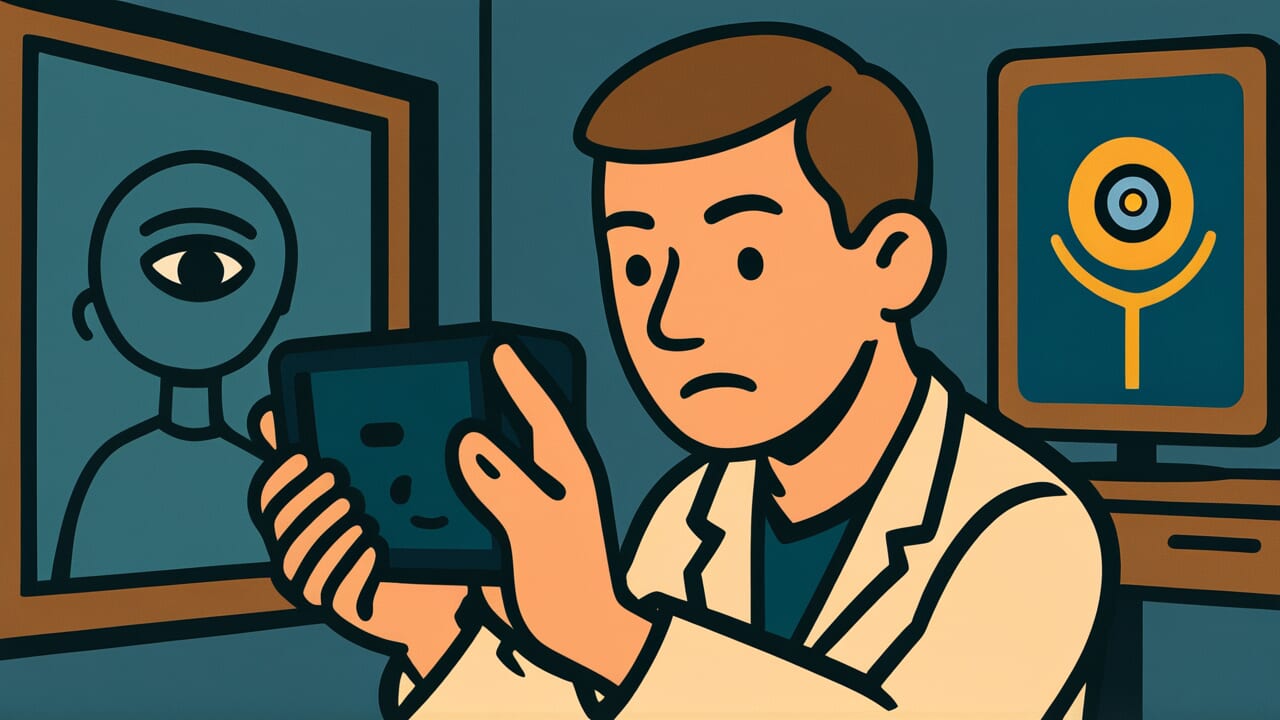How to Read “What you’re looking for is right in front of you”
Sensaku mono, me no mae ni ari
Meaning of “What you’re looking for is right in front of you”
This proverb teaches that what we’re searching for is often surprisingly close to us.
When we look for something, we tend to focus on distant or special places. But in reality, what we seek is often right beside us or in familiar spots.
This proverb points out a common human blind spot.
You use this saying when someone desperately searching for something realizes it was nearby all along. It applies not just to physical objects but also to answers and solutions.
It describes situations where overthinking causes us to miss simple answers.
This teaching remains relevant today. In our information-rich age, we often chase distant information while overlooking what’s important nearby.
This proverb reminds us to look at our feet first. It helps us regain our calm and perspective.
Origin and Etymology
The exact origin of this proverb is unclear, but its structure offers interesting insights.
The word “sensaku” likely comes from Buddhist terminology. “Sen” means the essence or truth of things, while “saku” means to search.
Originally, “sensaku” referred to the deep act of seeking truth.
“Sensaku mono” refers to the very object being sought. The phrase “me no mae ni ari” (in front of your eyes) reveals the realization.
What you were looking far and wide for was actually within reach all along.
This proverb emerged from insight into human psychology. When searching for something, people naturally look far away or in complex places.
We assume valuable things must be hard to reach.
This thinking connects to Zen philosophy. Truth isn’t in distant places but in daily life, right here and now.
Our ancestors taught us not to overthink but to start by reviewing what’s nearby. They captured this wisdom in simple words.
Usage Examples
- I made a big fuss about losing my keys, but “what you’re looking for is right in front of you”—they were in my pocket all along
- I searched endlessly for new ideas, but as “what you’re looking for is right in front of you” suggests, the hint was in my old files
Universal Wisdom
This proverb reveals a fundamental blind spot in human cognition.
People instinctively believe valuable things are far away. This makes sense as a survival strategy.
Throughout history, humans found new resources and opportunities by exploring unknown territories. But this exploration instinct sometimes blinds us.
Psychology describes a phenomenon called “selective attention.” Once we focus in a specific direction, everything else becomes invisible.
While concentrating on distant things, nearby objects disappear from view. This happens not just with vision but with thinking too.
Interestingly, humans believe “complex things are more valuable.” We dismiss easily obtained things and value what requires effort.
That’s why we can’t recognize simple answers right in front of us.
This proverb has endured because human nature hasn’t changed across time. Our ancestors saw people repeat the same mistakes repeatedly.
They left this teaching for us.
When AI Hears This
Cognitive science research shows the human brain receives 11 million bits of information per second. Yet it can only consciously process about 40 bits.
The brain constantly filters information, bringing only what it judges important to consciousness.
Here’s what’s interesting: the harder you search for something, the more your brain focuses only on “characteristics of what you’re seeking.”
For example, when looking for a white ball, your brain prioritizes processing “white and round” information. Ironically, even if a red ball sits right in front of you, it falls outside your attention filter.
You literally cannot see it. This is the mechanism of selective attention.
Even more surprising, a Harvard University experiment showed over half the participants missed a person in a gorilla costume walking through the center of the screen.
They were focused on counting passes by the team in white shirts. The act of searching itself narrows your field of view—not physically, but cognitively.
This proverb points out a cognitive trap: a brain in search mode only picks up information matching its predictions.
You can’t see what’s in front of you not because you’re not looking, but because you’re looking too hard.
Lessons for Today
This proverb teaches modern people the courage to stop and review what’s at their feet.
Modern society constantly encourages us to chase new things and distant opportunities. New information, trends, and chances appear endlessly.
Aren’t you tired of chasing them? This proverb calls out “wait a moment” to you.
When seeking answers, start by reviewing what’s nearby. What you already have, know, and can do.
The answer you seek might be hiding there. Before learning new skills, can you use your current skills better?
Before seeking new relationships, can you cherish existing ones?
This doesn’t deny ambition. Rather, it’s wisdom for reaching goals efficiently.
Instead of getting lost looking far away, secure your footing first. Then what you truly need will become visible.
Don’t rush or panic. First, carefully look around you.
That composure will guide you to real answers.



Comments